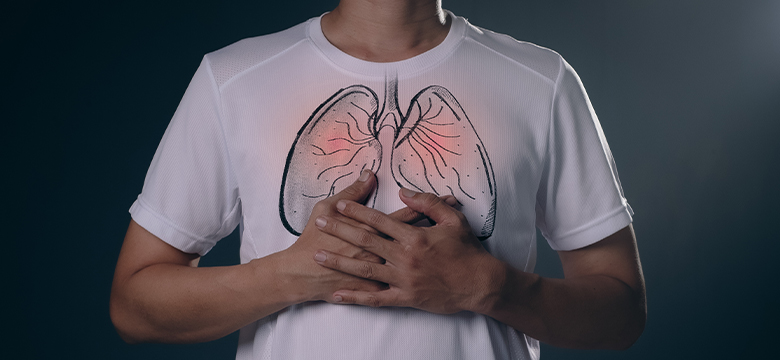
Chest infections are among the most common respiratory illnesses in the UK, especially during the colder months. They can range from mild viral infections that clear up on their own to serious bacterial infections requiring medical attention. Recognising the signs and symptoms of a chest infection early is key to a faster recovery and preventing complications.
In this guide, we’ll break down the different types of chest infections, how to identify them, and what treatment options are available — including when it’s time to book a private GP appointment in London for personalised care.
What Is a Chest Infection?
A chest infection affects the lungs or large airways, often following a cold or flu. It can be viral or bacterial, and the severity varies from mild bronchitis to more serious conditions such as pneumonia.
There are two main types of chest infections:
Both types share similar symptoms, but pneumonia is generally more severe.
Common Signs and Symptoms of a Chest Infection
Knowing what to look for helps determine when it’s time to seek medical advice. The symptoms of a chest infection can include:
While many people recover at home, you should always monitor your symptoms closely. If you experience high fever, rapid breathing, or confusion, seek medical help immediately — these may be signs of a more serious bacterial chest infection.
Causes of Chest Infections
Chest infections are most commonly caused by viruses or bacteria entering the respiratory system.
This is the most frequent type and often follows a cold or flu. It usually resolves without antibiotics, as the body fights off the infection naturally.
Caused by bacteria such as Streptococcus pneumoniae, this type often requires antibiotics. Bacterial infections are more likely to occur in those with weakened immune systems or chronic lung conditions.
Understanding these causes can help with prevention and early detection.
How to Tell the Difference Between a Viral and Bacterial Chest Infection
It can be difficult to distinguish between the two, but there are a few indicators:
|
Feature |
Viral Infection |
Bacterial Infection |
|
Fever |
Mild |
High and persistent |
|
Cough |
Dry at first, then wet |
Produces thick or coloured mucus |
|
Fatigue |
Moderate |
More severe |
|
Duration |
7–10 days |
Often lasts longer and may worsen |
|
Treatment |
Rest and fluids |
Often requires antibiotics |
If you’re unsure which type you have, it’s best to speak with a GP for proper diagnosis and treatment.
When to See a GP for a Chest Infection
Many chest infections clear up within a few weeks, but there are times when medical attention is necessary. You should book a GP consultation if you experience:
People with asthma, COPD, or weakened immune systems should seek help sooner. Booking a private GP appointment in London ensures quick access to expert care without long NHS waiting times, allowing for faster diagnosis and tailored treatment.
Diagnosis of a Chest Infection
When you visit your GP, they will:
This helps determine whether the infection is viral or bacterial and guides appropriate treatment.
Chest Infection Treatment Options
Treatment depends on the type and severity of your infection:
For mild viral chest infections, rest and self-care are often sufficient:
If a bacterial chest infection is diagnosed, your GP may prescribe antibiotics. Always complete the full course, even if symptoms improve. In severe cases, oxygen therapy or hospital treatment may be required.
If symptoms persist or worsen, follow up with your GP. Chronic chest infections can sometimes signal an underlying condition like asthma or bronchitis that needs further management.
How to Recover from a Chest Infection Faster
Speeding up recovery involves a combination of rest, hydration, and healthy lifestyle choices:
Preventing Chest Infections
Prevention is always better than cure. You can lower your risk of developing chest infections by following these tips:
Taking these preventive steps can significantly reduce your chances of infection, especially during winter.
Chest infections are common but can become serious if left untreated. Recognising the symptoms early, managing them with rest and fluids, and seeking professional advice when necessary are the best ways to ensure full recovery.
If your symptoms persist, worsen, or you have an underlying health condition, consulting a Private GP in London can help you access quick, comprehensive care. For expert diagnosis and same-day appointments, visit Private Doctor London .
A healthy lifestyle, strong immune system, and prompt medical attention are the keys to overcoming chest infections effectively and keeping your lungs strong year-round.